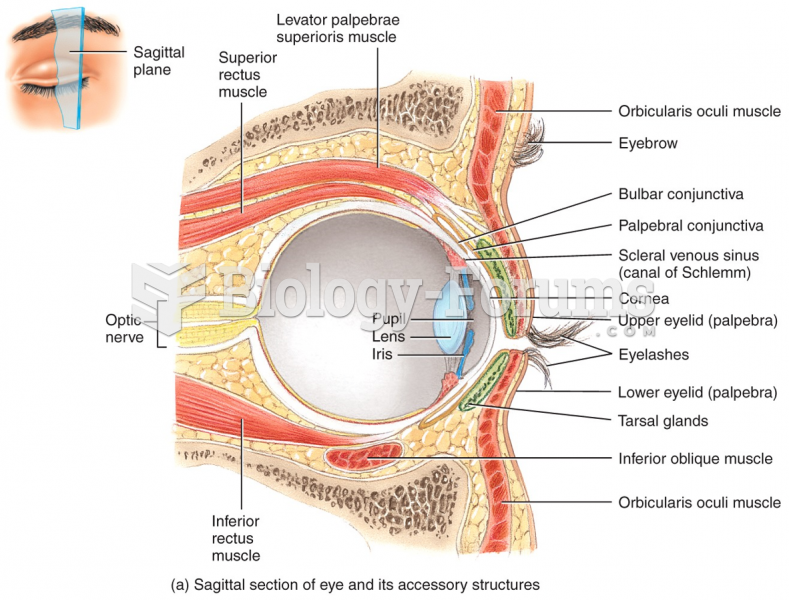This topic contains a solution. Click here to go to the answer
|
|
|
Did you know?
Cancer has been around as long as humankind, but only in the second half of the twentieth century did the number of cancer cases explode.
Did you know?
Individuals are never “cured” of addictions. Instead, they learn how to manage their disease to lead healthy, balanced lives.
Did you know?
The most destructive flu epidemic of all times in recorded history occurred in 1918, with approximately 20 million deaths worldwide.
Did you know?
On average, the stomach produces 2 L of hydrochloric acid per day.
Did you know?
Certain topical medications such as clotrimazole and betamethasone are not approved for use in children younger than 12 years of age. They must be used very cautiously, as directed by a doctor, to treat any child. Children have a much greater response to topical steroid medications.
 Succession in the intertidal zone involves colonization and competition for limited space among spec
Succession in the intertidal zone involves colonization and competition for limited space among spec
 Two-handed kneading on the upper leg. Apply kneading to medial, posterior, and lateral muscles of ...
Two-handed kneading on the upper leg. Apply kneading to medial, posterior, and lateral muscles of ...





